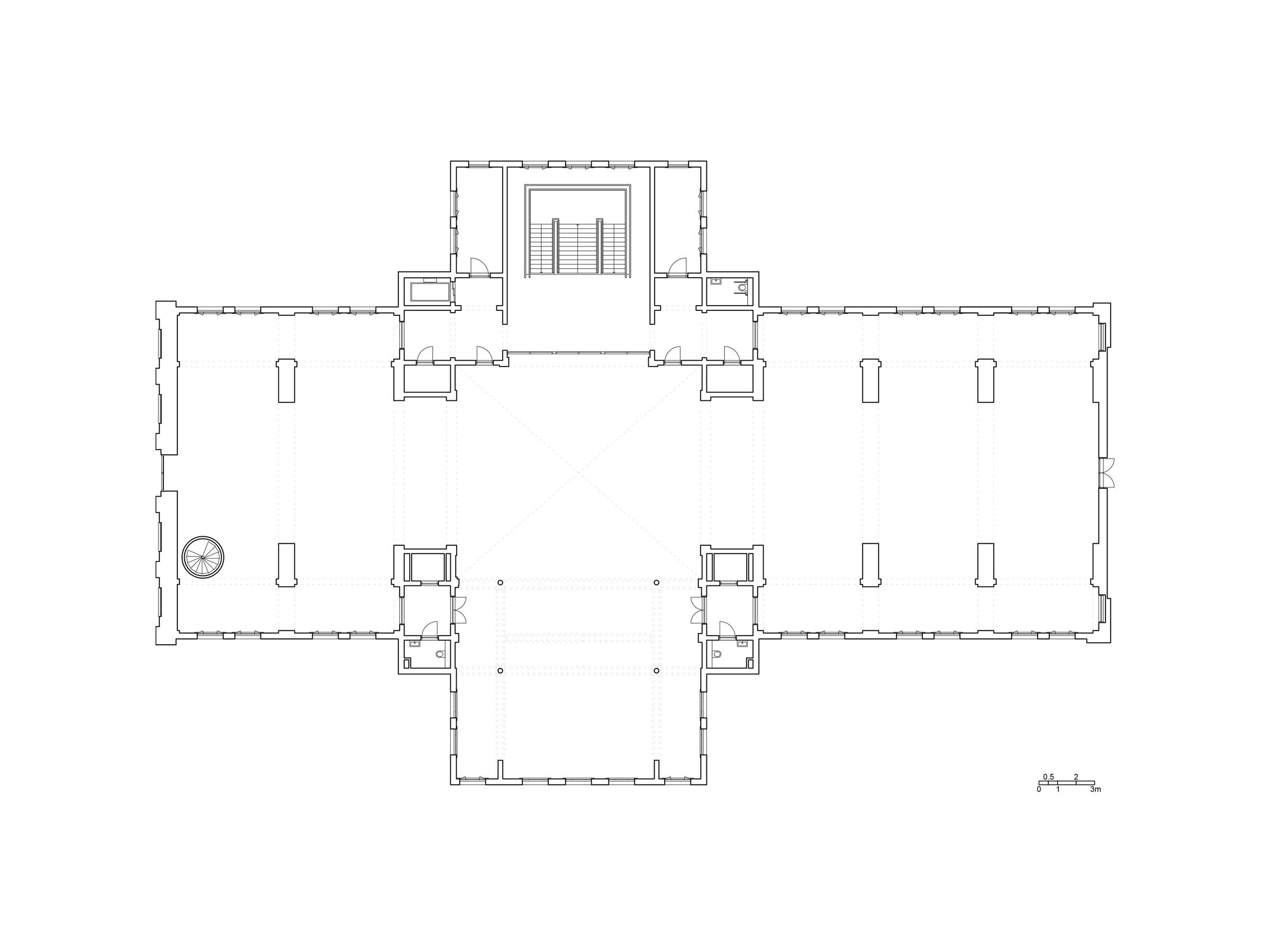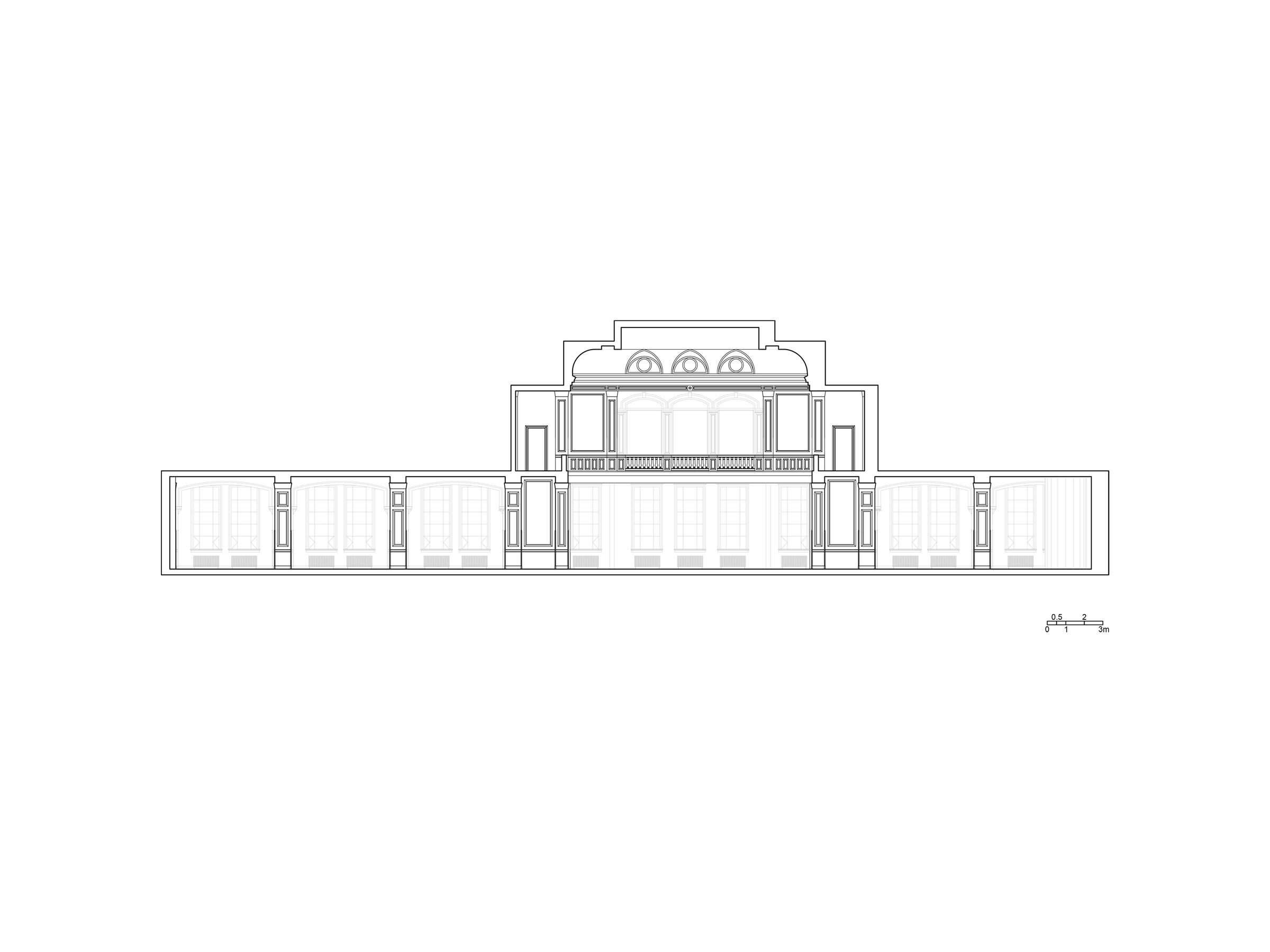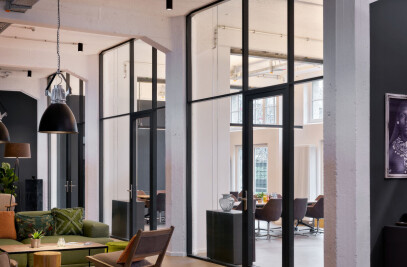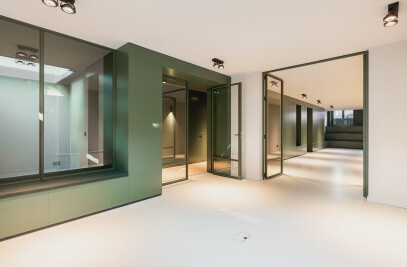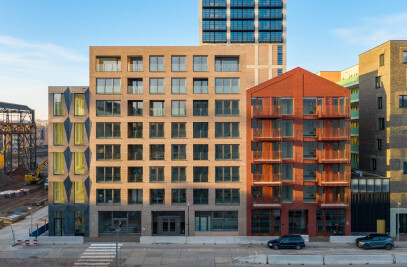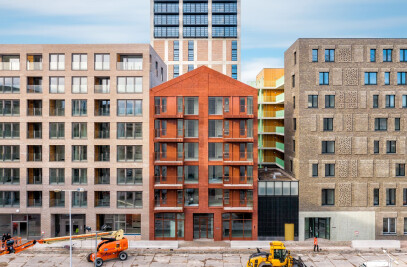Right across the Artis Zoo in the stately Plantage neighbourhood in Amsterdam, Bureau Fraai converted the monumental chapel ‘de Nieuwe Sint Jacob’ that was once part of a mental institution into a multicultural psychological practice, named Adagio. The practice distinguishes itself from other practices by offering treatments in other languages than Dutch to its multicultural clientele, with a special focus on Latin languages.
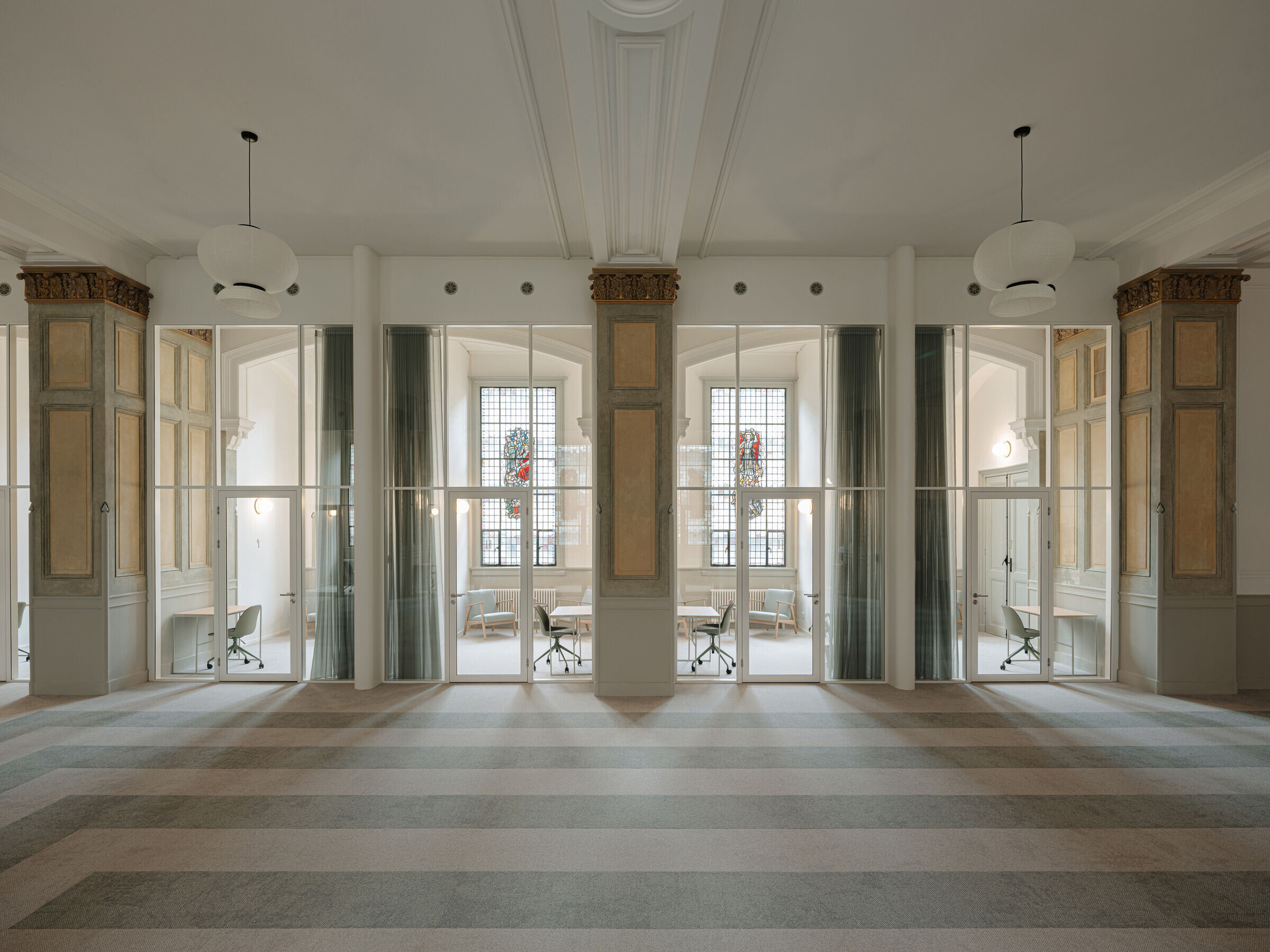
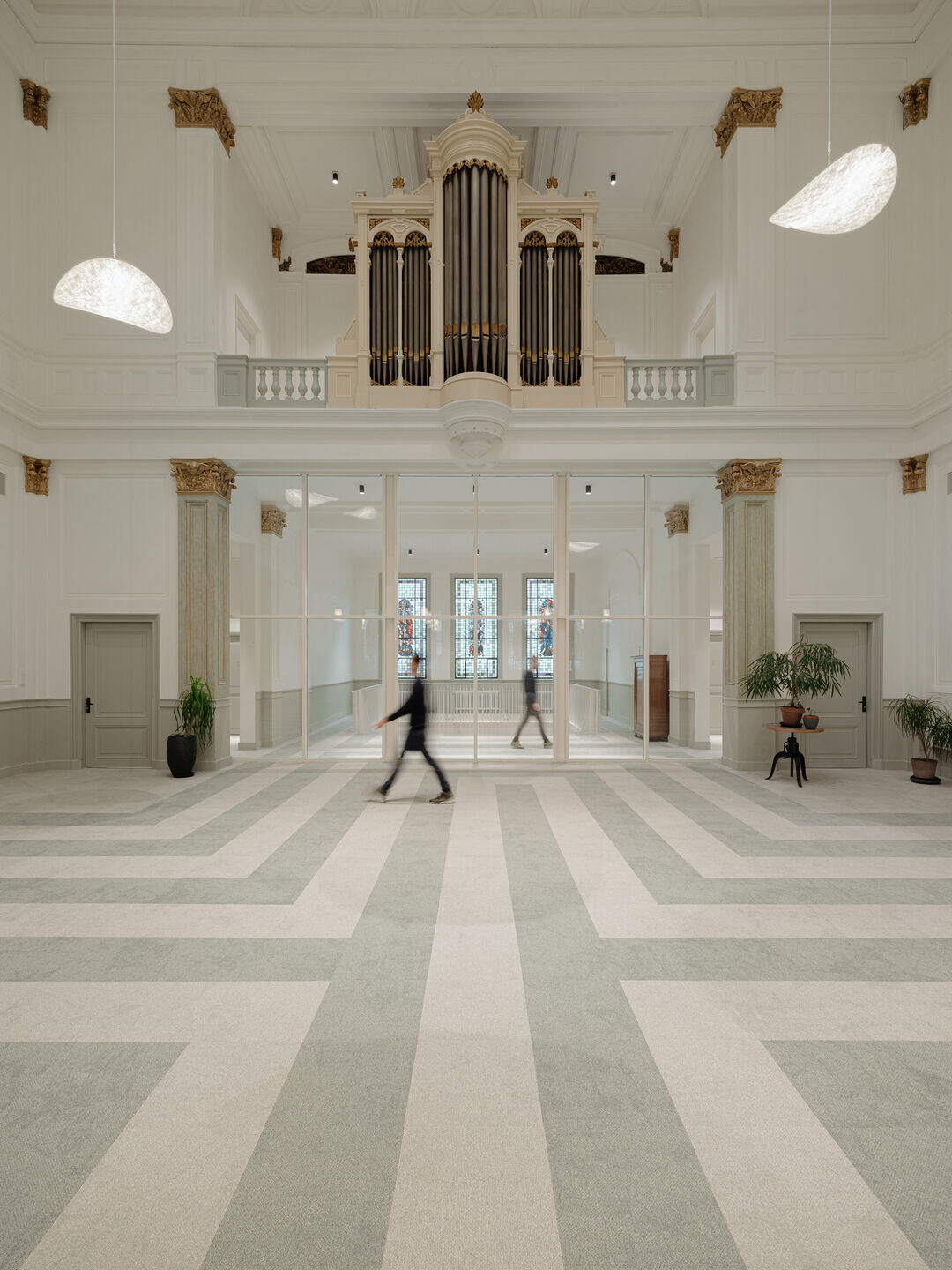
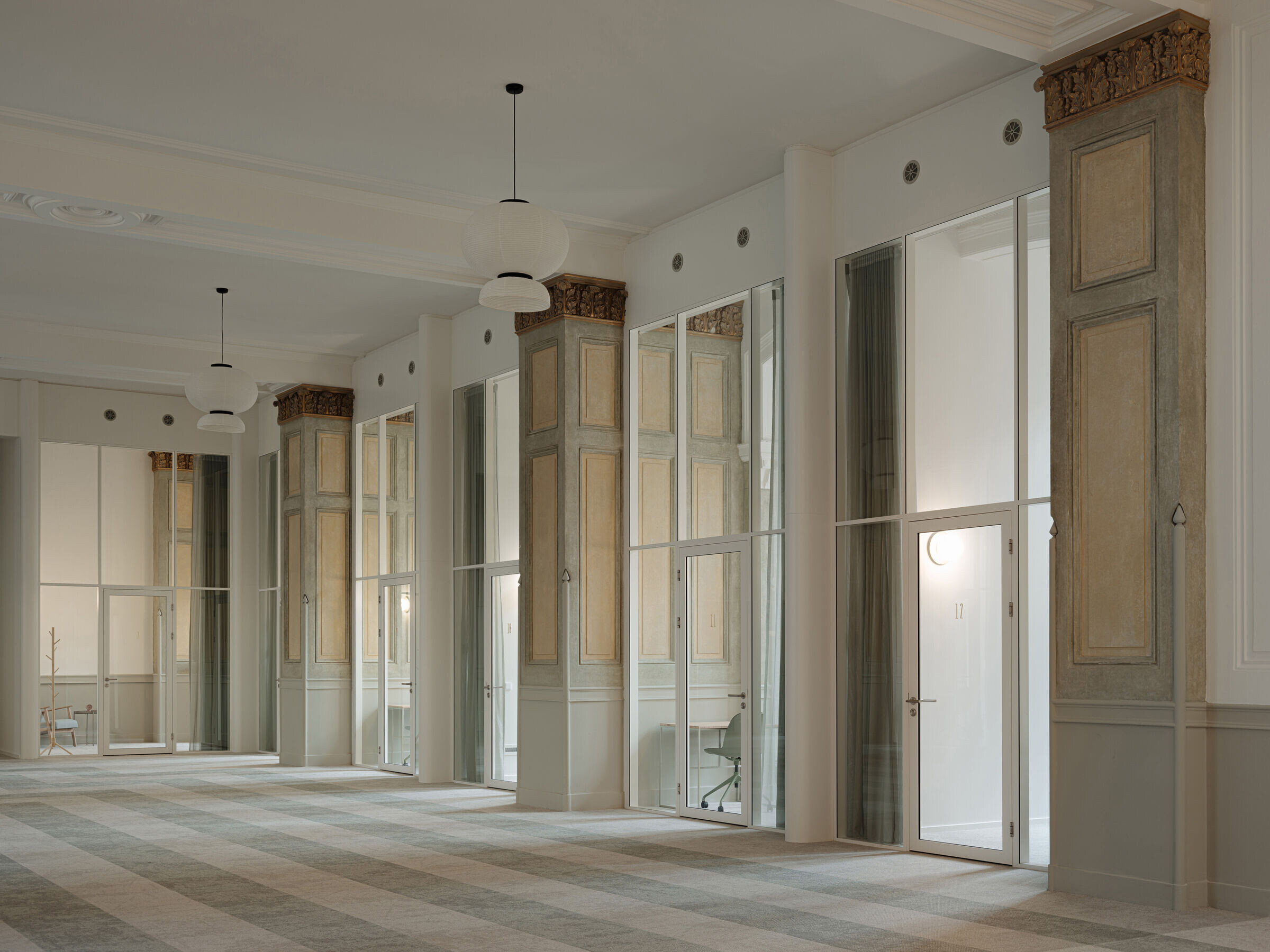
The architects made an interior design with a ‘labyrinth’ patterned floor and mainly circular materials, carefully embracing the existing monumental interior by respecting and preserving the beautiful characteristics of the chapel.
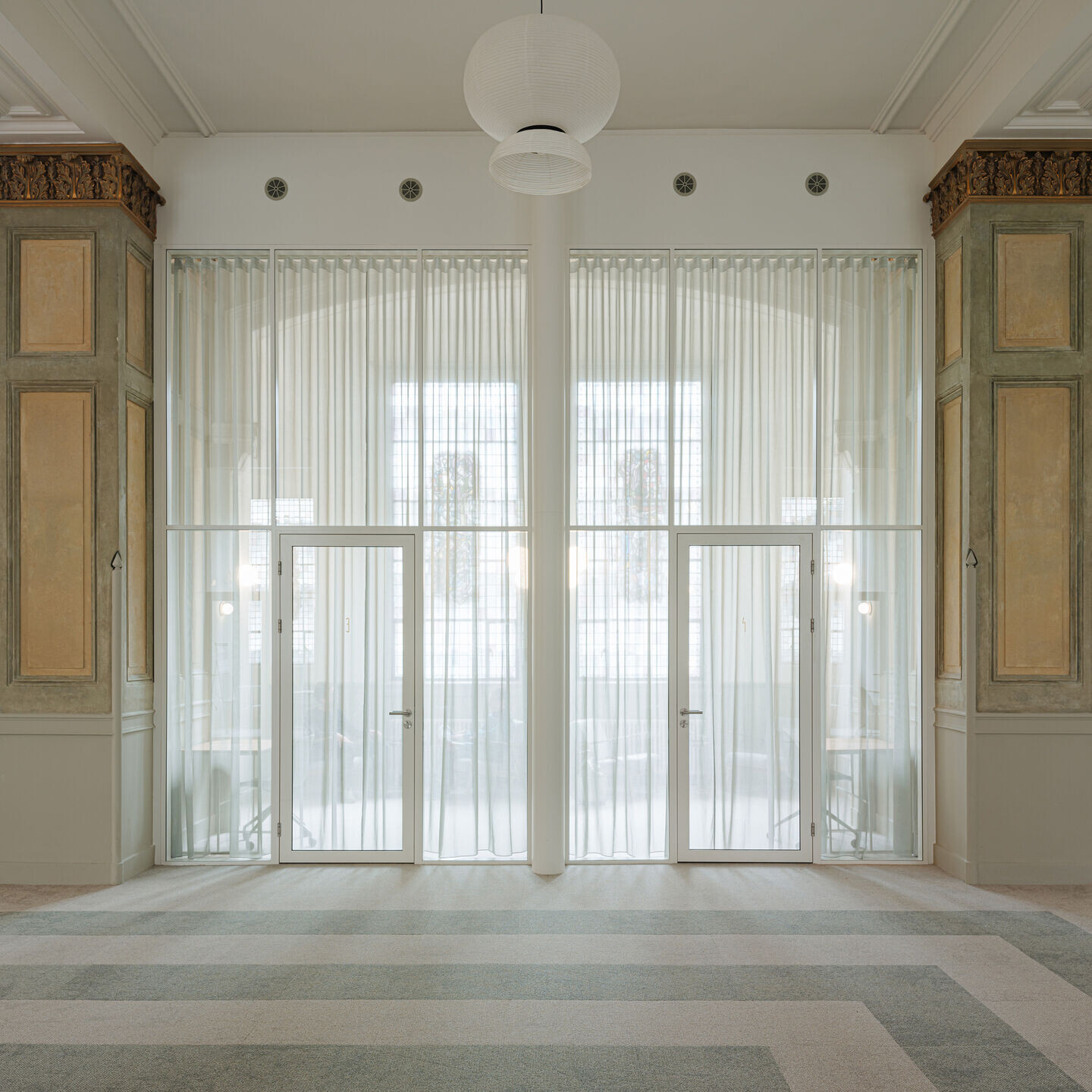
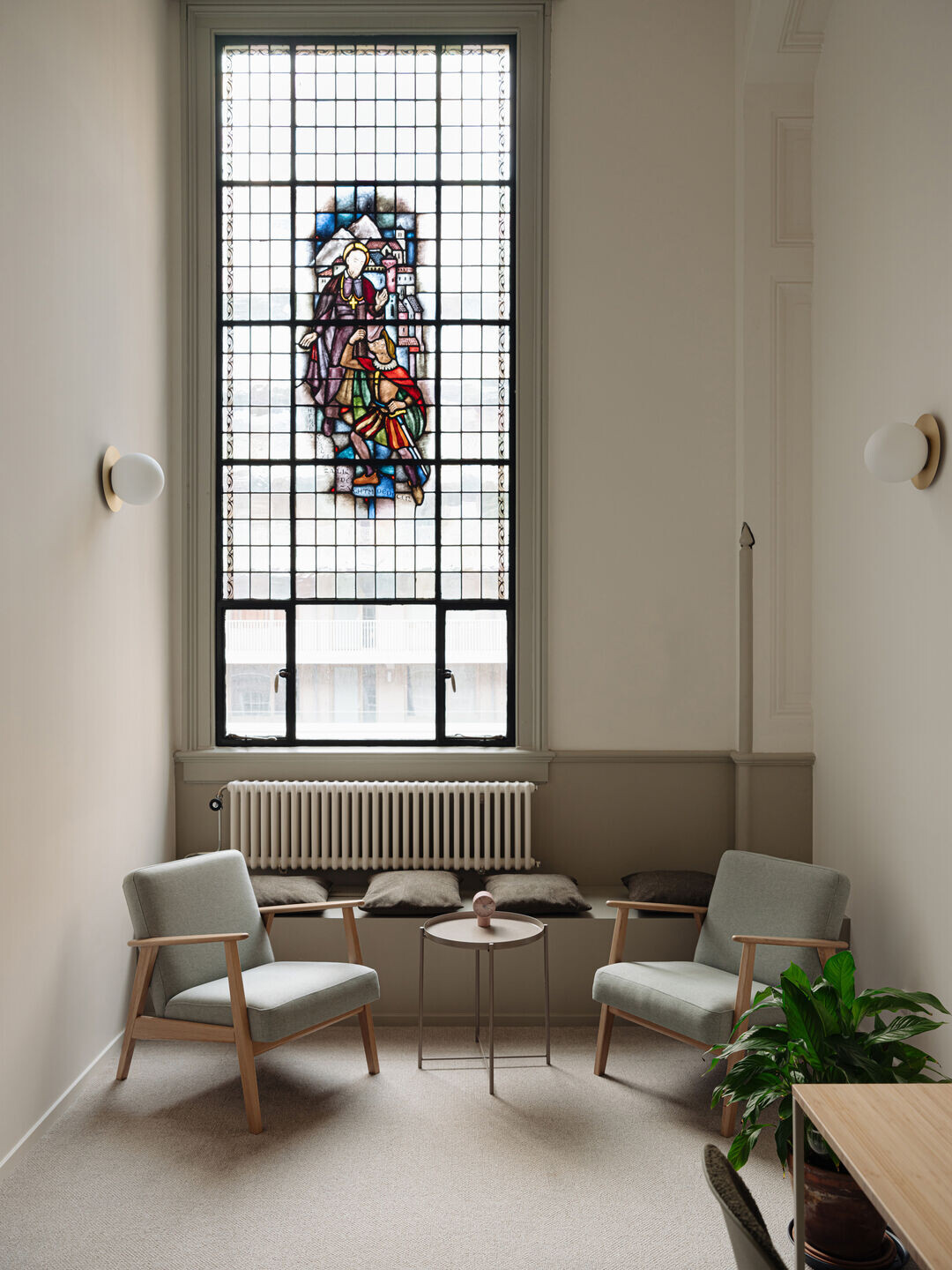
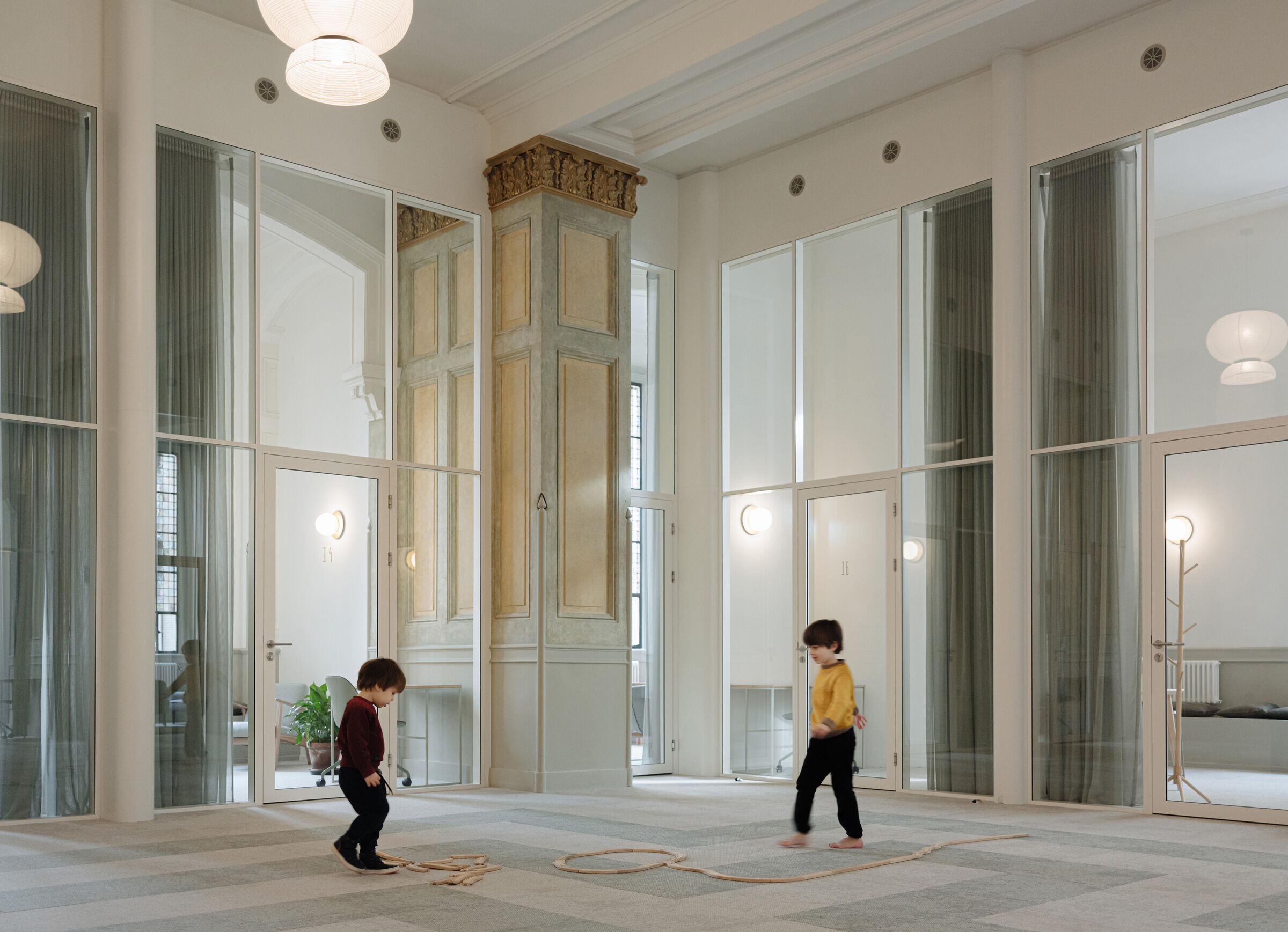
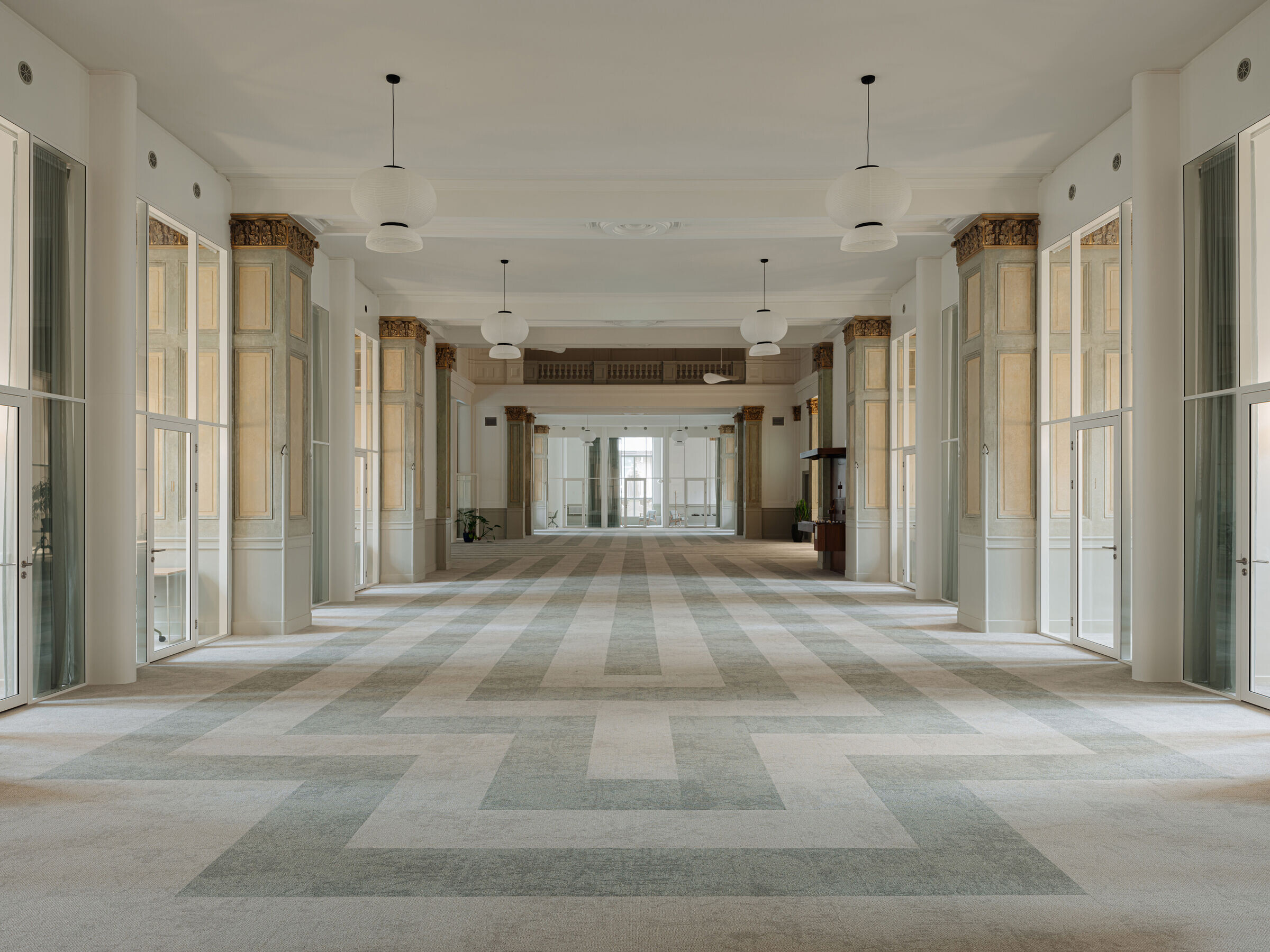
The chapel, originally part of a mental institution established in 1866, was just newly renovated whereafter Bureau Fraai made an interior design. The central sanctuary with a height of 13 meters where the organ is situated was originally used as a chapel and now forms the heart of the practice. The connected naves with a height of 5 meters, now housing the 20 treatment rooms, used to function as dining halls for the mental institution. The existing interior is characterised by the beautiful light green and yellow pillars with gold cornices, the refined ornamentation, and the stained-glass windows.
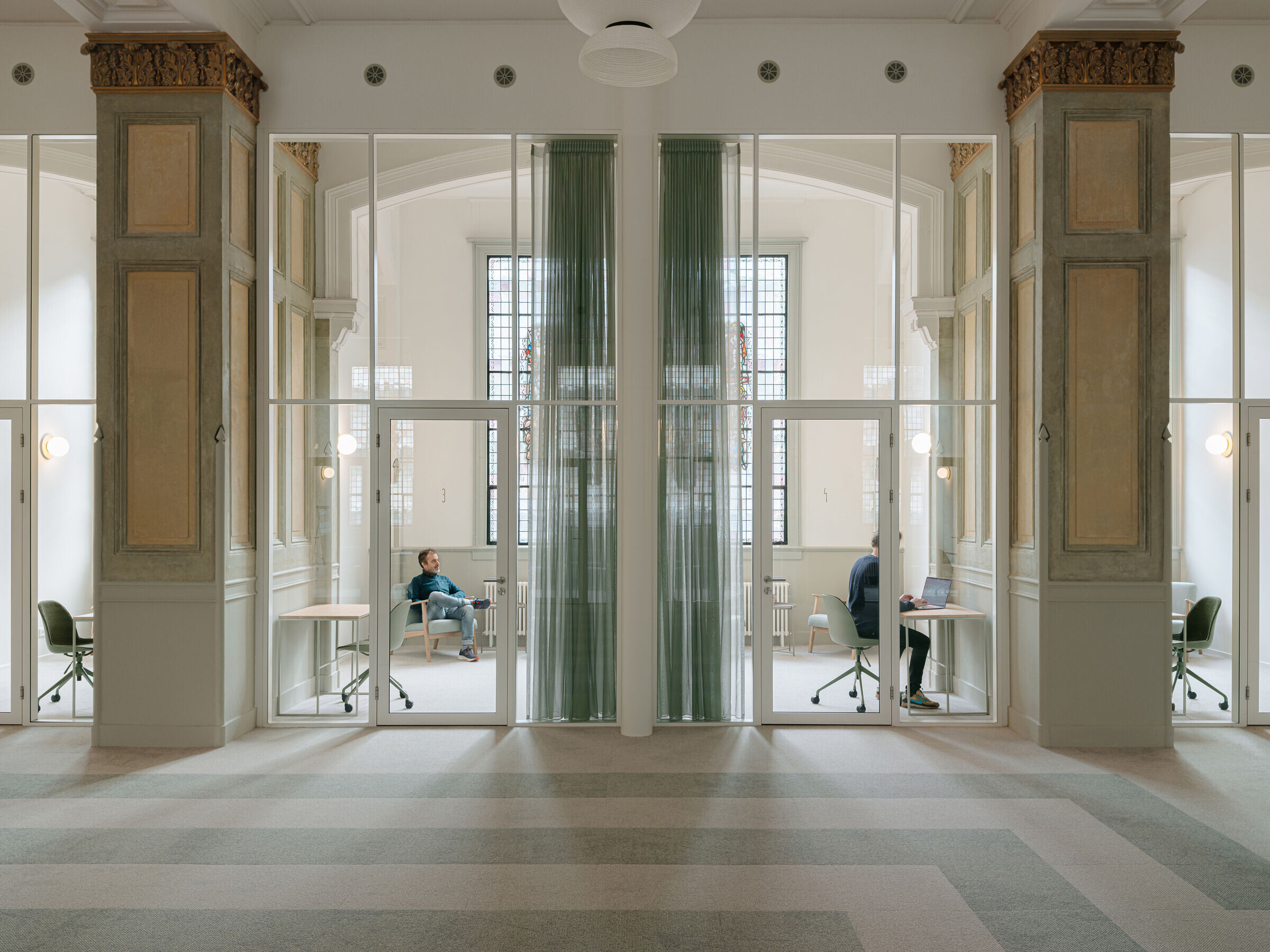
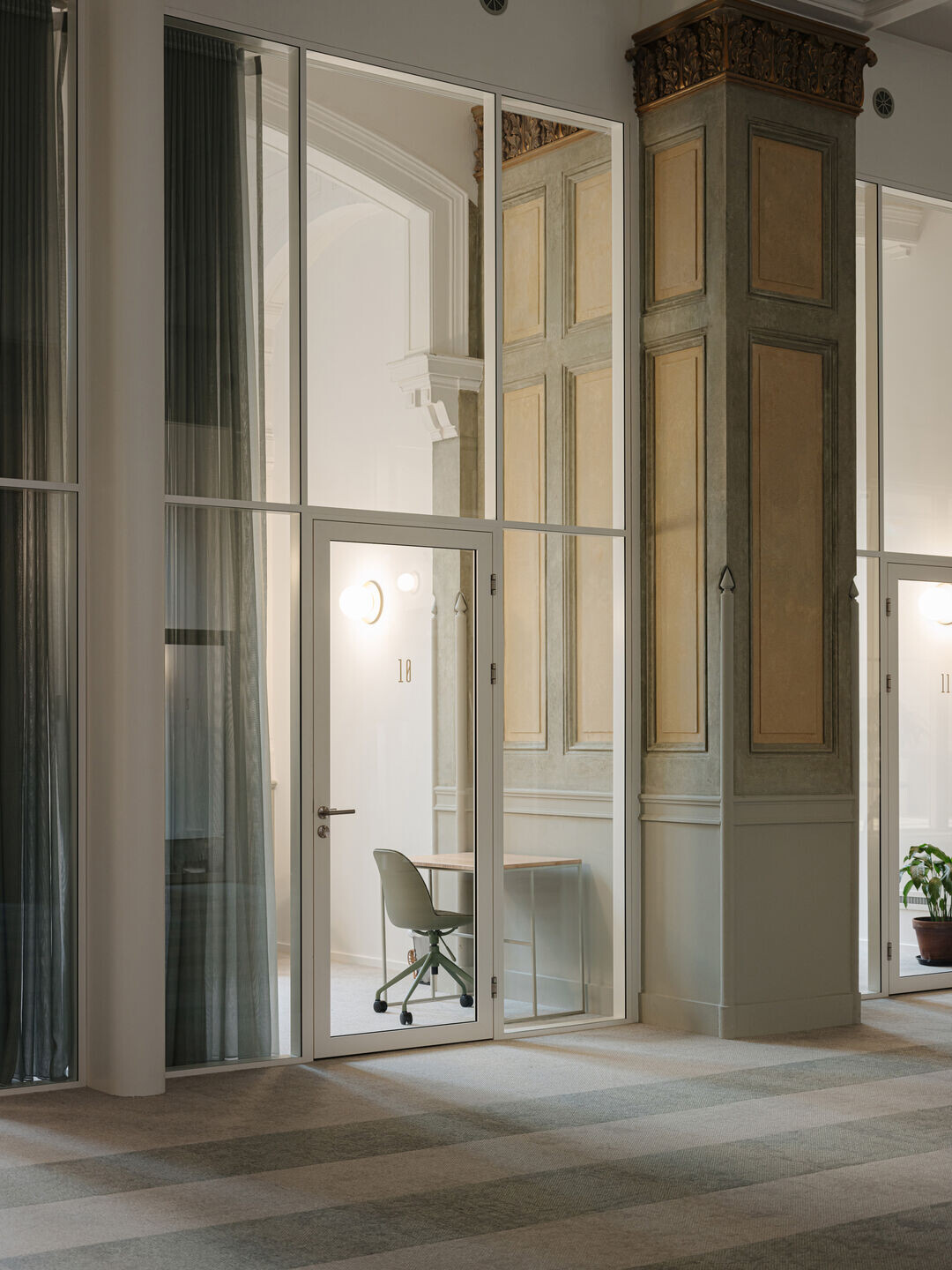
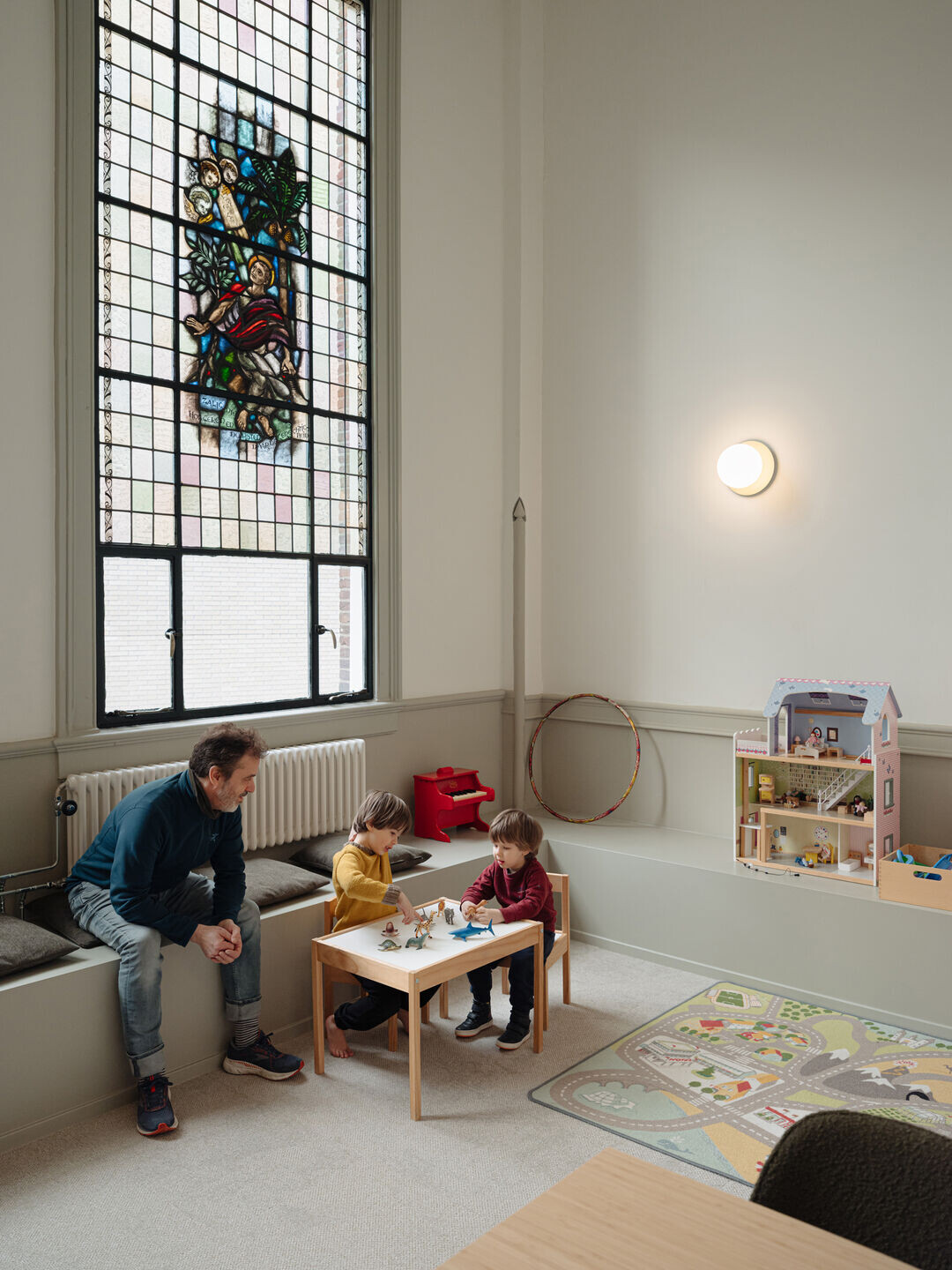
The architects were strucked by the spatial quality and abundance of light in the space. For the interior design, which had to be welcoming and comfortable for clients and staff, they managed to preserve and strengthen these qualities and at the same time respect the existing ornaments and details. The monumental space is therefore kept as open and transparent as possible, and the new interventions touch the existing elements as minimal as possible. A green-grey floor pattern depicting a playful labyrinth is introduced to give the central open space a human scale and a unique identity. This pattern, made of circular, green-coloured carpet tiles, represents the process of the treatments the practice offers helping people to ‘find their way back’.

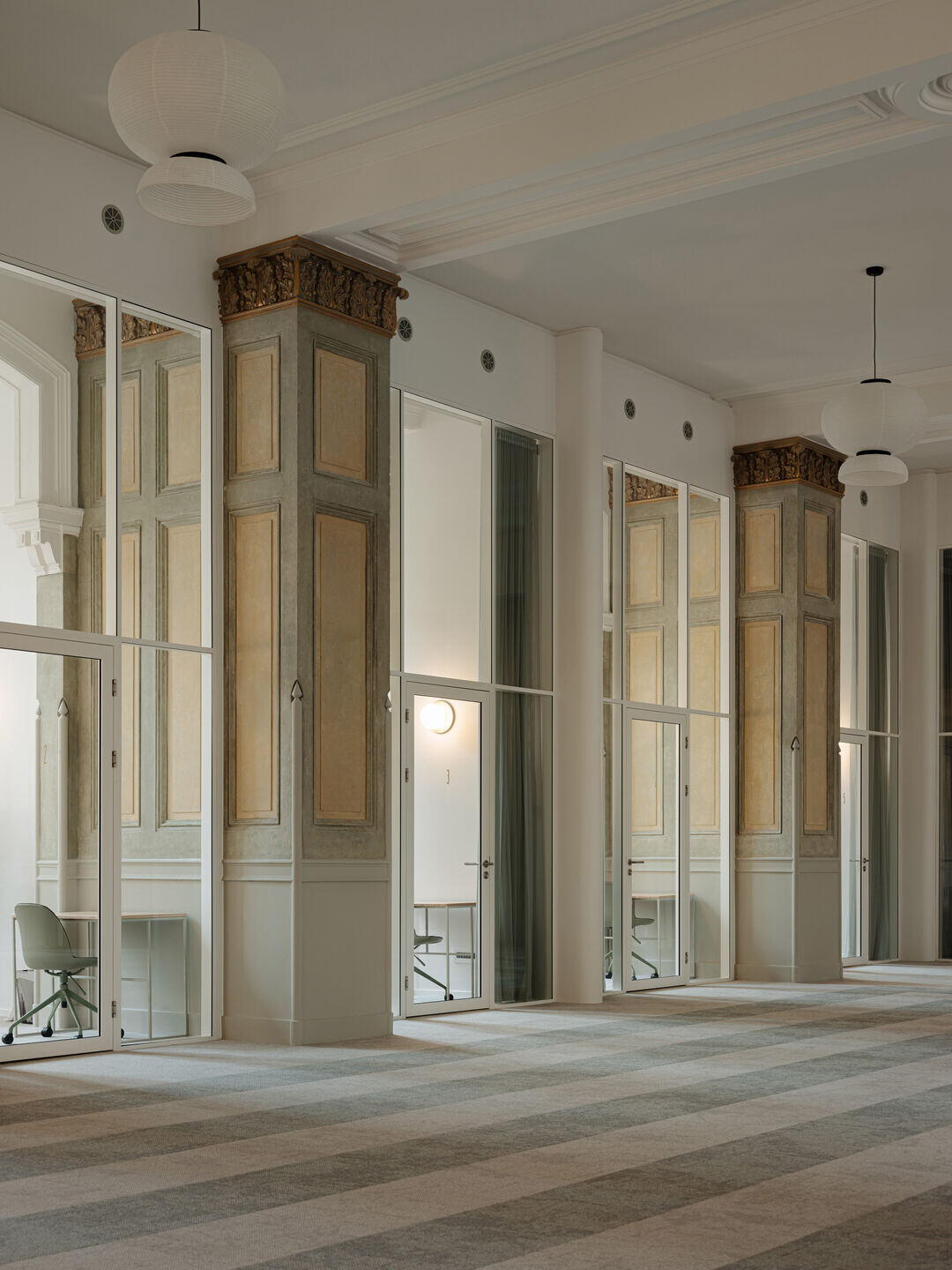
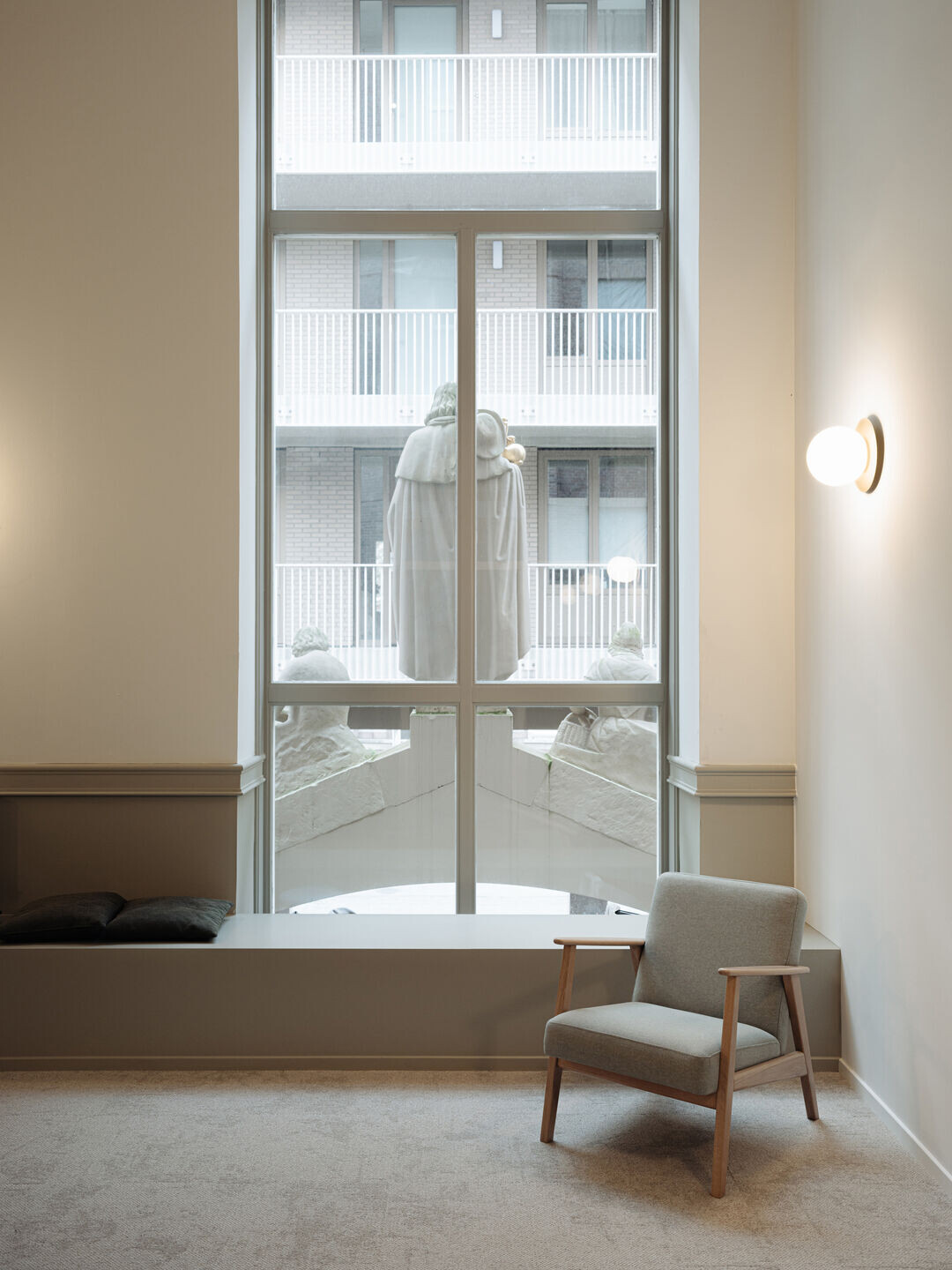
Between every two pillars two treatment rooms are situated, each having its ‘own’ stained glass window. A very refined set-back window frame (cradle to cradle silver certified) is introduced in between the pillars directing the central nave. Translucent curtains still create privacy in these treatment rooms while remaining transparent enough to get the light in and keep the pillars visible. The office space, including lunch area and kitchen for the staff, is situated in the heart of the building. With the transparent setup and subtle use of green-grey colours, the new design creates a harmonious and welcoming atmosphere where the monument’s rich history is respected, embraced and still tangible.
